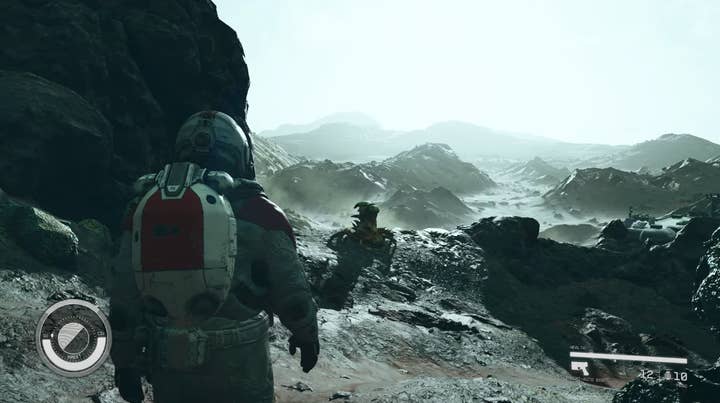Is it worth taking part in Gamescom Opening Night Live?
The Fancensus Analytics Team explore the amount of media coverage given to games displayed in last week's showcase
In some quarters of the industry, it's become popular to say that big game companies no longer need large events to showcase their titles. Inspired by the likes of Nintendo, which has been running its own Direct online broadcasts since 2011, many of the biggest developers and publishers in the world have started to question whether it is worth taking part in these showcases and instead would prefer to control their own narrative with trailers and marketing beats.
There's some question about correlation and causation here, as games appearing in ONL are more likely to be backed by larger marketing budgets anyway, and were significantly outperforming non-ONL games even before the show. Likewise, the post-ONL levels would reflect both the impact of the show as well as the impact of many of those big games having a presence at Gamescom and its 320,000 attendees.
But data from Fancensus suggests that it is worth being involved in these showcases. Looking at the games taking part in Gamescom's Opening Night Live event, titles that were on stage at the Geoff Keighley-hosted showcase dominated 61 per cent of total press coverage surrounding the event.
In fact, you can see a clear spike in media attention for games taking part in the show. As the show came to a close, there were almost 1,500 articles written about titles in ONL. Comparatively, around 300 articles were written about games that were not on stage – and mentioned Gamescom – at the same point in time.
As you can see from the graph below, even before Opening Night Live, games that had been announced for the showcase were receiving more coverage than those that had not. As mentioned earlier, this gap grew considerably during the show, but even afterwards, games at the event were receiving around 200 more articles an hour than those that were absent.

Games featured in Opening Night Live also saw greater prominence in press coverage. Fancensus data shows that these titles were far more likely to appear as the headline item for an article; 77% of articles about Opening Night Live mentioned games from the showcase in the headline, while the remaining 23% were only mentioned in pieces.
By comparison, games that were absent from Opening Night Live were far less likely to be featured in an article headline. Roughly 39% of pieces of games-related coverage for Gamescom featured titles not at Opening Night Live as their headline item.
The Opening Night Live is a global event, so it’s worth looking at how countries around the world felt about what was on display at the showcase.
Even though Starfield received the most coverage after Gamescom Opening Night Live, Bethesda actually only saw 4.91% of total coverage
This year, the country with the highest positive sentiment towards the games shown at Opening Night Live was the Netherlands. A massive 78% of articles written about what was featured were positive.
Fancensus measures sentiment by checking the 'severity' of each sentence in an article, based on word choice, among other things. The severity of all sentences is used to calculate the article's overall sentiment.
The Netherlands' positive sentimnet coverage is well ahead of second place, which was Austria with 56%. Germany, Gamescom's home, came in the middle of the pack with 43% of coverage leaning towards the positive.
Of the games that did take part in Opening Night Live, Starfield saw the largest spread of press coverage between the game kicking off ONL and the end of August 23rd. That’s perhaps a little unsurprising given the sheer amount of hype surrounding Bethesda's new IP – the first in 25 years – but still speaks to the extra attention that being in the showcase brought about.
The ambitious sci-fi RPG saw coverage in 1,182 articles across 522 sites. There’s certainly excitement around the game, but Opening Night Live might have helped boost the amount of eyeballs on the game. The average daily reach of those 522 sites is approaching a massive 147 million people.
Starfield also boasted the most positive coverage at Opening Night Live, clocking in at around 40% positive sentiment, coming in just ahead of Cyberpunk 2077: Phantom Liberty expansion. Positive sentiment around the latter might be due to the fact that some of the big changes that the update is bringing are in fact coming to the base version of CD Projekt’s RPG.
Even though Starfield received the most coverage after Opening Night Live, Bethesda actually only saw 4.91% of total coverage. The company that saw the largest share of voice overall was in fact Bandai Namco with 11.54%. This is due to the fact that the Japanese publishing giant had multiple games at the show; Tekken 8 received 759 articles from 461 sites, while Little Nightmares 3 – which was announced at Opening Night Live – was the subject of 616 pieces from 468 outlets. Combined, Bandai Namco’s contribution to the showcase was written about in 1,375 articles, 16% higher than Starfield’s 1,182.

55.1% of Starfield coverage featured the game in the headline, well behind the No.1 title in this category – Immortals of Aveum – which was the headline item in 77% of its coverage. That is likely over-represented in the data as the fantasy shooter from Ascendant Studio was actually released on the same day as Opening Night Live, so it’ll already have been written about a fair bit.
Meanwhile, Little Nightmares 3 was the headliner in 69.6% of its coverage, likely due to the game being one of the few new titles at the show to be announced on stage, coming in just ahead of fellow Bandai Namco stable mate, Tekken 8. The upcoming fighting title was the headline item in 67.5% of coverage about the game. Bandai Namco used its trailer for Tekken 8 to announce a slew of new features for the title, such as a single player mode and avatar creation.
All of this suggests that it’s not enough to simply show your game on stage; if you want your title to be written about and lead in media coverage, you have to have something to talk about that will help media lead with your title.
